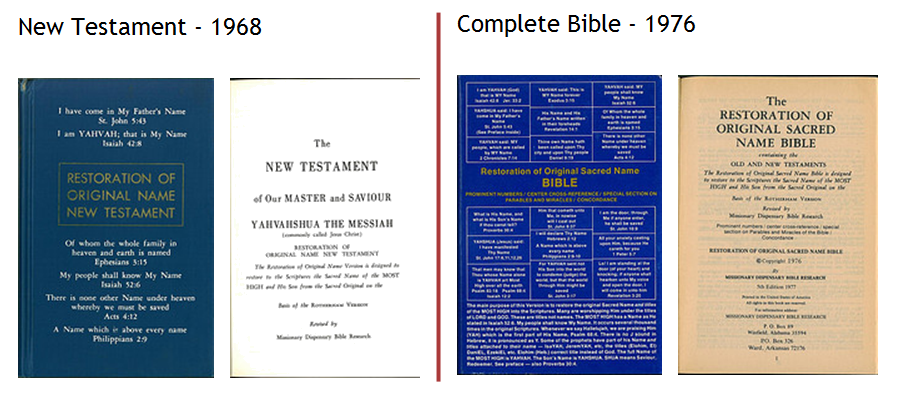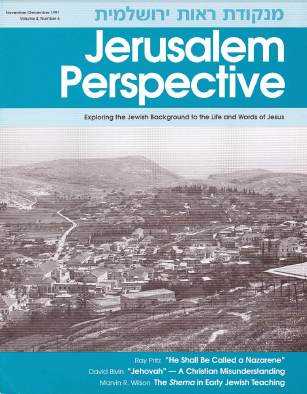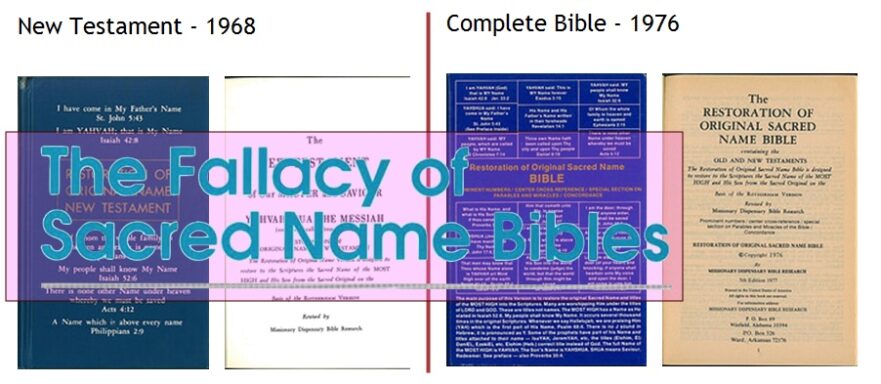Revised: 17 Nov 2022
There are a number of Christian teachers today who claim that God’s name, spelled with four Hebrew letters—yod, heh, vav, heh (YHVH, originally, YHWH)—in the Hebrew Scriptures, is being deliberately kept secret. In what seems partly to be an anti-Semitic attack on their part, much of the blame for this “conspiracy” is laid at the feet of the Masoretes, the Jewish scholars of the sixth-ninth centuries A.D. who created vowel signs with which to vocalize the text of the Bible (see my “‘Jehovah’: A Christian Misunderstanding”).
These Christian teachers argue that it is wrong to translate God’s name “LORD,” and that English Bible translators should use “Yahweh” instead. To assist in disseminating their point of view, they have published a spate of “Sacred Name” or “Holy Name” versions of the Bible in which “Yahweh” is printed wherever YHWH appears in the Hebrew text (see the Wikipedia entry “Sacred Name Bibles”).
Overly Literal Translation
Many of the conclusions of these Christian teachers are reached on the basis of unidiomatic, overly literal, English translations of the Bible. For example, they assert that a person’s salvation is dependent on his or her using and correctly pronouncing the divine name. This assertion is based on the biblical statement, “Everyone who calls on the name of YHWH will be saved” in Joel 2:32 (quoted in Acts 2:21). Thus, according to their interpretation, one would not be able to call out to God and be saved without a knowledge of the correct pronunciation of God’s name in Hebrew. In fact, however, the Hebrew idiom “the name of YHWH” is just a synonym for “YHWH,” a way to avoid speaking of God too familiarly or directly. If the “Sacred Name” advocates were using an idiomatic English translation of the Hebrew text, their assertion would not be possible.
Premium Members and Friends of JP must be signed in to view this content.
If you are not a Premium Member or Friend, please consider registering. Prices start at $5/month if paid annually, with other options for monthly and quarterly and more: Sign Up For Premium
The theology of the “sacred name” teachers is a good example of the way overly literal translations of Bible passages are apt to influence English speakers in wrong directions. In this case, numerous unidiomatically translated Scripture texts taken at face value have combined to produce a misguided approach that is more concerned with God’s name and its proper pronunciation than with God himself.





